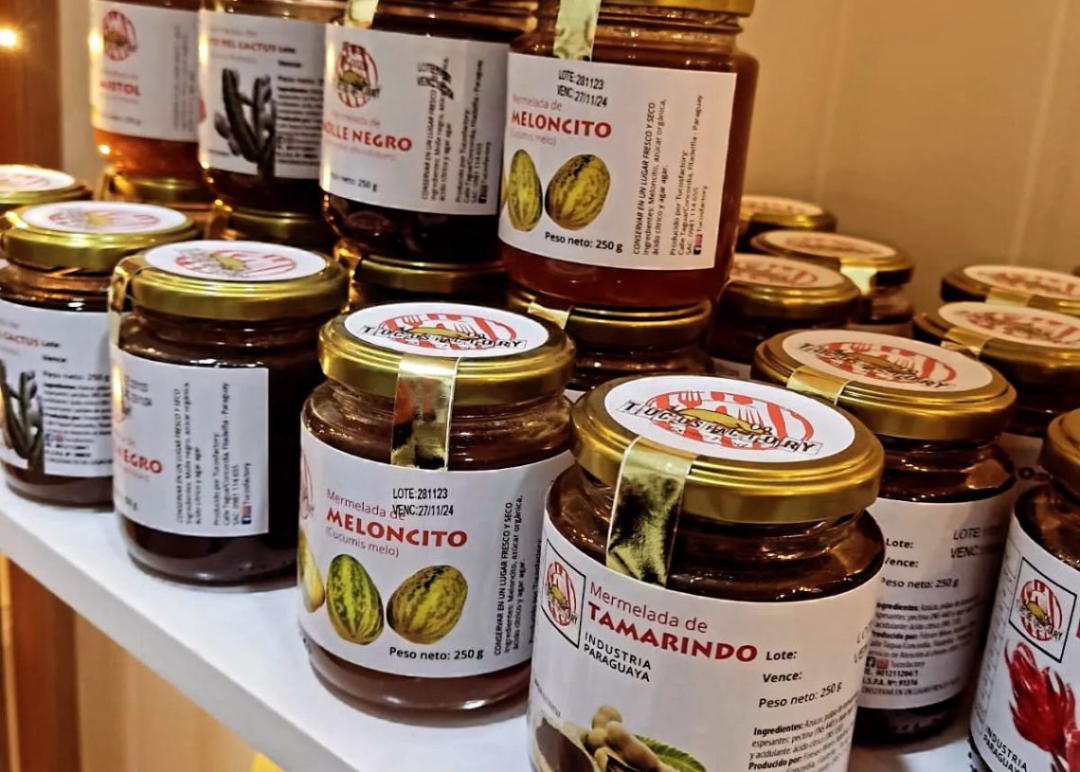Disclaimer:
Please be aware that the content herein is comprised of personal reflections, observations, and insights from our contributors. It is not necessarily exhaustive or authoritative, but rather reflects individual perspectives. While we aim for accuracy, we cannot guarantee the completeness or up-to-date nature of the content.
What is it? Tucos Factory is a business dedicated to producing food products derived from wild fruits of the Paraguayan Chaco, such as flour, syrup, jams, and other goods made from carob, mistol, black molle, kumquat, wild melon, and prickly pear. Who promotes it? The initiative is led by a local woman entrepreneur, together with a team of Indigenous women from the Nivaclé, Guaraní Ñandeva, and Ayoreo peoples, with support from UNDP through the Small Grants Programme and the Fernheim cooperative. What does it involve? The project aims to process and commercialize wild fruits from the Chaco region, promoting ecosystem conservation and generating income for the Indigenous communities involved. Activities include collection, processing, and sales of products such as jams, flours, mistol coffee, juices, and wild chili pepper, with a focus on sustainability and formalization of the enterprise. What does it achieve? Income generation for around 100 Indigenous and rural families Economic and social empowerment of approximately 70 Indigenous and rural women Promotion of environmental conservation in the Chaco region Diversification of the food market through native and exotic products Development Stage: In development, with formalization processes underway and growing commercialization in local and national markets. Origin and Actors Origin of the solution: The initiative originated as part of the project “Chaco Women in Network: Our forest, our knowledge, and our future in our hands”, promoted by UNDP. Driving actors: A collaboration between Indigenous communities, the private sector (Fernheim cooperative), and UNDP, with support from other local and governmental actors. Leave No One Behind Socioeconomic base of promoting actors (approx. quintiles 1 to 5): This solution targets the most vulnerable communities, particularly Indigenous women from quintiles 1 and 2. These women live in rural communities with limited access to basic services and economic opportunities. Gender perspective: The solution incorporates a high gender perspective by engaging Indigenous women in leadership and development roles. It directly promotes the economic rights of women and girls through their economic and social empowerment. Lessons Learned Collaborative work between Indigenous communities and external actors can produce sustainable and inclusive solutions Formalization is a key challenge that requires technical and financial support Valuing local products strengthens cultural and economic identity Active participation of Indigenous women at all stages is essential for project success
 Consent to share form or official link.
Consent to share form or official link.Tuco’s Factory: Un emprendimiento con impacto social y cultural en el Chaco – RCC


 1No poverty
1No poverty 5Gender equality
5Gender equality 8Decent work and economic growth
8Decent work and economic growth 12Responsible consumption and production
12Responsible consumption and production 15Life on land
15Life on land
Comments
Log in to add a comment or reply.